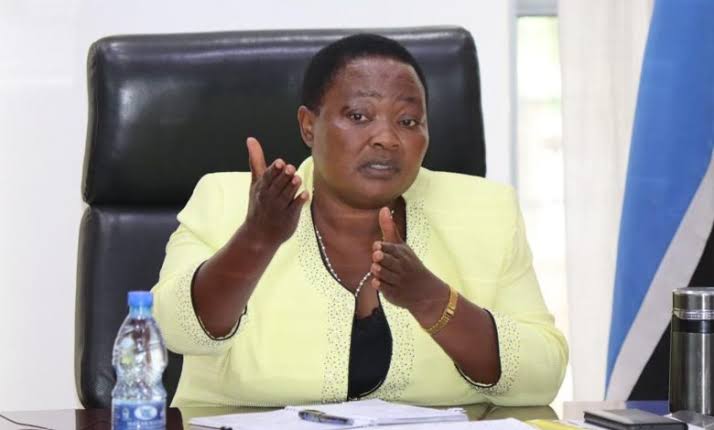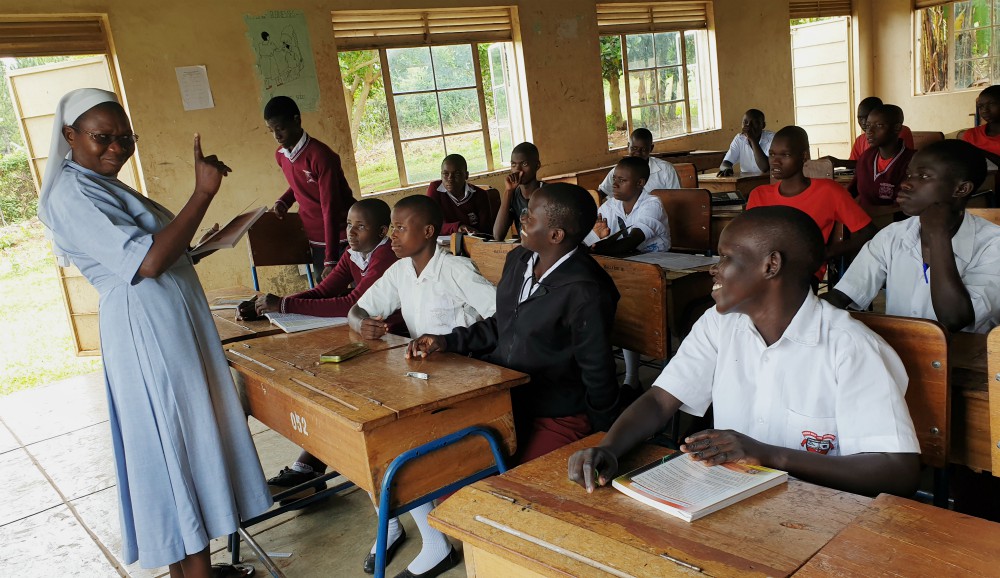By Steven Masiga
Governance and the execution of public policies are not about being fashionable in dressing, but rather about carefully addressing the needs of the people and the ability to connect with the public with compassion. Government policies, however abrupt they may be, require committed leaders who are willing to get their hands dirty and act with urgency. Rt. Hon. Robinah Nabanja is seen by thousands of party supporters in Bugisu and beyond as the right woman for the task.
Many experts on governance say Rt. Hon. Robinah Nabanja is well-versed in statecraft and a natural mobilizer, with vast networks across the country to mobilize for the party—unlike previous Oxford-trained and Kampala-based politicians. Besides being our Prime Minister, Rt. Hon. Robinah Nabanja is also a mother and a compassionate person, as reminisced by Hon. Irene Manghali Khainza, the Inzu ya Masaba envoy for mobilization and former RDC of Manafwa. Miss Irene Manghali is a close friend of the current Prime Minister and at some point, served together as Resident District Commissioner (RDC) in various districts where Robinah Nabanja was also the RDC.
The Prime Minister of Uganda was in Bugisu a few days ago. Her visit had three key purposes: first, to commiserate with those who had lost their loved ones during the infamous landslides in Bulambuli; second, to mourn the Bamasaba who had perished in the landslides; and third, to deliver much-needed government aid and condolences to the bereaved families. The tears in her eyes as she visited Bulambuli encapsulated everything. Hon. Robinah was grieving alongside fellow Ugandans who had been displaced and ravaged by the landslides.
Nabanja may not be the first PM to cry—many Prime Ministers, such as Theresa May of the United Kingdom and PM Modi of India, have cried due to political pressure and office-related challenges, but not because they were grieving the loss of lives. For Robinah Nabanja, however, her tears were ones of sorrow, mourning the children killed by the landslides, the mothers lost, and the families shattered. Hers were tears of genuine emotion and bereavement.
When Inzu ya Masaba officials visited the camps recently, one young girl of about 7 years asked me in Lumasaaba, “When is Mayi Robinah coming back again?” Another elderly woman, who told me she had lived for 90 years, remarked that she had never seen a Prime Minister as compassionate as Robinah—despite being a full PM heavily guarded with military security, tears were rolling down her cheeks uncontrollably. She was indeed overcome by emotion.
The sight of the Ugandan Prime Minister clinging manually to the pavilion of a bajaji, as the rider raced through debris and mud left by the landslides, making the road rougher and more impassable than before, was seen on several media platforms, including mainstream news.
Gone are the days when the likes of Prof. Lugubrious were Prime Ministers of Uganda. No one could imagine the likes of Nsibambi or Hon. Mbabazi getting onto a motorcycle, climbing the undulating hills of Bulambuli to the landslide scene. But the “fisherwoman,” as she is popularly described by Ugandans, was more than determined to deliver government support directly to those it was meant for, over 300 kilometers away from Kampala.
Rt. Hon. Robinah Nabanja is a firm believer in the Latin doctrine of delegatus non potest delegare (that a delegate cannot delegate further to another person). Not that she has no one to delegate to, but because she feels she needs to execute her tasks as guided by the President—meeting the people displaced by the landslides, making assessments, and reporting to the President or Cabinet on how to respond.
Mrs. Irene Manghali, the former RDC of Manafwa, says the Ugandan Prime Minister is still young and capable of handling the tasks assigned to her by her bosses. She further observes that Nabanja’s deployment as PM has brought millions of women closer to the government.
The Bamasaba cultural leader, His Highness Jude Mike Mudoma, says that the Bamasaba are full of praise for Rt. Hon. Robinah. “Firstly, for supporting many of our activities, including the 20 million shillings she gave us to support the Imbalu launch this year, and now for her determined efforts in ensuring that our people in Bulambuli are well resettled and provided with emergency relief.”
The Bulambuli landslides have displaced over 2,000 residents, according to camp statistics, and the Office of the Prime Minister (OPM) has already provided posho, beans, and other necessities. Further efforts are being worked on to manage the situation, according to Brigadier General Akiki of the OPM, attached to the camp.
The Umukuka III of the Bamasaba, His Highness Jude Mike Mudoma, further says that as a cultural institution, they are going to work closely with the government to ensure that the sacred cultural sites destroyed by the landslides are restored. This will include planting certain species of trees in the cultural trails, which the Bamasaba use when going for Imbalu. “We shall also sensitize our people on mindset change,” Mudoma said. “The cultural institution is working closely with Rt. Hon. Prime Minister Robinah on this.”




















